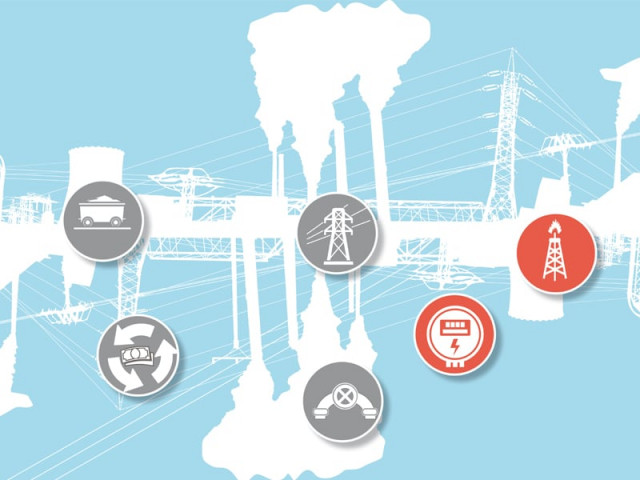Govt asked to book people behind energy crisis
Dialogue participants hit out at policymakers for failure to foresee rise in demand .

According to Randhawa, Pakistan has 45,000MW hydropower generation capacity, 35,000MW wind energy potential and 180 billion tons of coal. PHOTO: FILE
Participants of the ‘Policy dialogue on electricity sector reforms” have asked the government to fix responsibility for the energy crisis afflicting the country and bring criminal charges against the people involved.
They suggested that people like the former Indus waters commissioner Jamaat Ali Shah, former chairman of the technical committee on water resources ANG Abbasi and other policymakers must be held responsible for the crisis in order to avoid repeat of corrupt practices in the future.
The discussion was arranged by the Research Institute of Natural Resources of Pakistan (RINP) in collaboration with the United States Agency for International Development (USAID).
Punjab Additional Secretary for Energy Khalid Awais Ranjha told the dialogue participants that the provincial government had decided to tap coal resources.

Around 596 million tons of coal was available in Punjab and the government had planned to install power plants, each of 50 megawatts, on mines to feed the industries. Power plants were also being established at Sunder and M3 industrial estates.
Ranjha stressed that compressed natural gas (CNG) should be provided for consumption only in public transport vehicles and gas must be diverted to the industry and power plants. He announced that the government was also revising the power tariff, which would be enforced soon.
Responding to a question, he said Punjab would have a share of 68% in whatever energy it would produce. Recently, the chief minister has signed MoUs with Chinese companies for producing power at 10 to 12 cents per unit, which is less than the basket price.
University of South Asia Vice Chancellor Dr Sohail Aftab was of the view that unfortunately policymakers did not plan for an annual 7-9% increase in electricity demand. He chided then Wapda chairman, who was responsible for planning energy matters during the Musharraf regime.
Underlining the need for conserving energy, Aftab said more than 20% of power could be saved through effective management and applying conservation techniques. He suggested that people should be encouraged to use low power consuming equipment and awareness should be spread.
Lahore Electric Supply Company Chief Engineer Iftikhar Ahmed Randhawa pointed out that unfortunately since 1958 the country was following the policies of others instead of making its own policies.
“We laid a single transmission system in the country and did not allow separate transmission systems at the local level, which is one of the causes of today’s energy problems,” he said.
“In 1984, we decided not to build any power plant in the public sector and we are facing all electricity-related problems due to this policy blunder,” he remarked.
According to Randhawa, Pakistan has 45,000MW hydropower generation capacity, 35,000MW wind energy potential and 180 billion tons of coal. He also proposed construction of 50MW solar power projects through contribution of only Rs55 by every Pakistani.
Engineer Suleman Najib gave a presentation on water issues and blamed the policymakers for losing the Kishanganga case to India.
He said water diseases were increasing and in Lahore the number of cancer patients was going up because of water-borne diseases. He stressed that Kalabagh Dam was still a lifeline for Pakistan and asked the media to create awareness.
Dr Naghman Khan of Future Energy, while emphasising the importance of research and innovation, encouraged young university graduates to go for higher education and seek scholarships in energy-related disciplines.
RINP Programme Manager Hisham Bajwa said they were going to undertake an energy reforms programme in Lahore, for which they have selected three towns in the first phase.
He said this dialogue among the stakeholders would devise a future roadmap to implement electricity reforms in the country.
Published in The Express Tribune, July 18th, 2013.
Like Business on Facebook, follow @TribuneBiz on Twitter to stay informed and join in the conversation.



















COMMENTS
Comments are moderated and generally will be posted if they are on-topic and not abusive.
For more information, please see our Comments FAQ